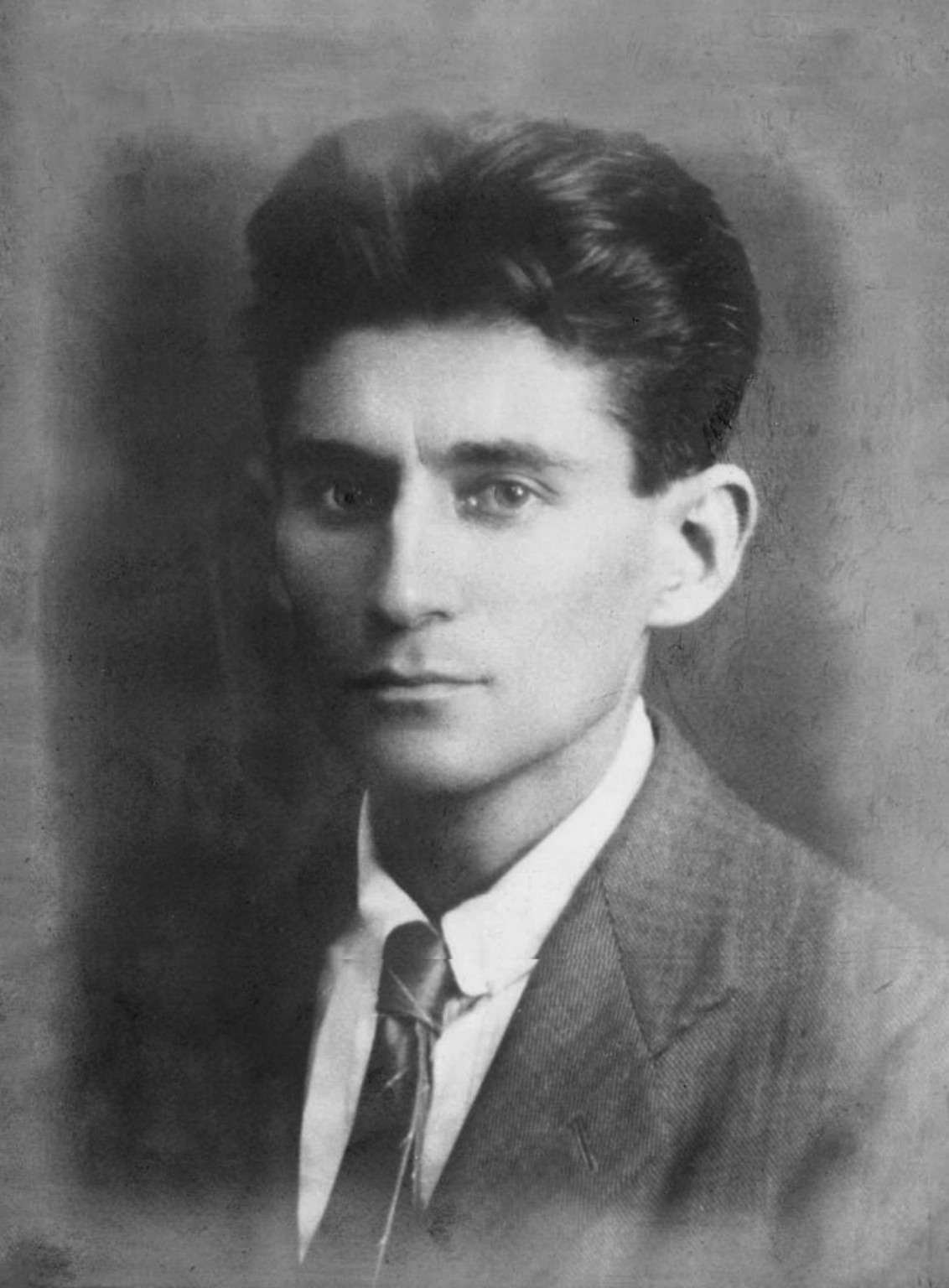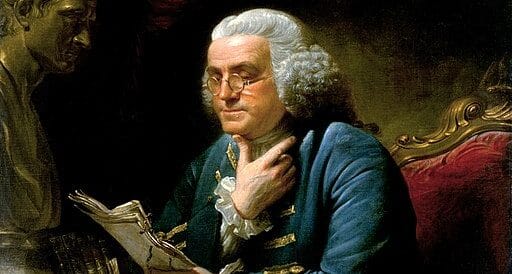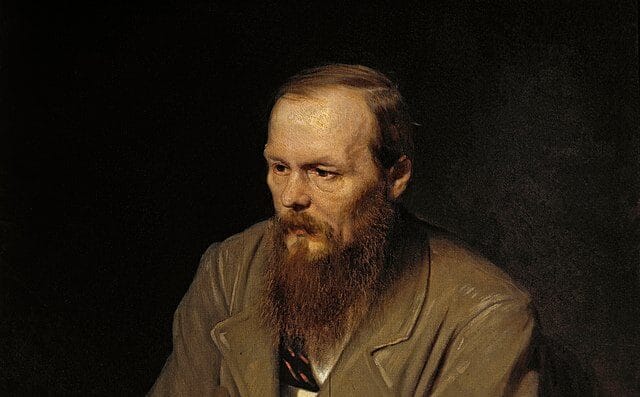Franz Kafka : A Life caught between silence and words
Franz Kafka was born on July 3, 1883, in Prague. At that time, Prague was part of the Austro-Hungarian Empire. The city was a cultural mix of Czechs, Germans, and Jews. Kafka belonged to the German-speaking Jewish community. This mix of cultures shaped his life in ways he could not escape.

His father, Hermann Kafka, came from a poor Jewish family in the countryside. Through hard work, Hermann built a successful business selling fancy goods. He was loud, strong, and full of confidence. His mother, Julie, came from a wealthier background. She was more educated than her husband. But she remained quiet in family matters and focused on helping with the business.
Kafka was the eldest of six children. Two of his younger brothers died in infancy. His three sisters, Elli, Valli, and Ottla, survived into adulthood. Kafka always felt out of place in the family. He was quiet, thin, and sensitive. His father wanted a son who was strong and practical. Kafka, with his love of books and shy nature, disappointed those expectations.
The Father’s Power and the Son’s Silence
Kafka’s relationship with his father shaped much of his emotional life. Hermann Kafka was proud of his success. He expected his son to follow the same path. Franz could not. He was not made for business. He felt crushed under his father’s loud voice and strong personality. He tried to please him but always felt like a failure.
This emotional gap never closed. Kafka lived with a deep fear of his father. He also blamed himself for not being stronger. In 1919, he wrote a long letter to his father. He never sent it. But it remains one of his most painful writings. In it, Kafka explained how he had grown up feeling weak, guilty, and unworthy. He said he lived under a silent judgment he could never escape.
Many of his stories carry this same fear. In The Trial, a man is arrested and punished without knowing his crime. In The Judgment, a son is sentenced to death by his father. These are not just fiction. They are echoes of Kafka’s own life.
Kafka’s mother, though kind, could not protect him. She stayed in the background. She did not stand up to Hermann. Kafka respected her, but he also felt let down. He longed for comfort but received silence. This silence left a mark on him.
Loneliness in a Busy Home
The Kafka household was always busy. The family lived above their shop. Business came first. Feelings had no place. Kafka often felt invisible. He spent long hours alone in his room. Books became his companions. He read widely. He loved literature, philosophy, and languages.
Even as a child, Kafka thought deeply. He questioned life, death, and his place in the world. He saw how people wore masks to fit into society. He saw how families could hurt each other without meaning to. These early thoughts would later become the heart of his writing.
Among his siblings, Kafka felt closest to Ottla. She was brave, independent, and kind. She understood him better than anyone. She supported his choices. She also stood up to their father when needed. Kafka once said Ottla was the only person who truly gave him peace.
Later in life, Ottla’s fate would bring more pain. She died in a Nazi concentration camp. Kafka had already passed away by then. But their bond remains one of the few bright spots in his difficult life.
Early Education and the Inner World of Writing
Kafka attended German-language schools. These were strict and formal. He did well in his studies. Teachers saw him as bright and disciplined. But Kafka felt pressure. He often doubted himself. He once said that education had done him harm. It made him feel small, not strong.
He began writing quietly in his teen years. He did not share his work. He feared judgment. Writing was private. It was not a way to impress others. It was how he made sense of things. His early stories were full of strange symbols and deep feelings. Even then, he was trying to speak from the heart.
Kafka did not want to write like others. He wanted to write what was real to him. He wanted to show the hidden fears people carry. He believed that writing should disturb. It should expose the truth, even when painful. This view stayed with him all his life.
By the time he finished school, Kafka already carried many burdens. He felt guilt for not living up to his father’s hopes. He felt trapped in a family that did not understand him. He feared the outside world. But he also feared being alone. Writing became his way to survive.
Education, Work, and the Weight of Daily Life
Franz Kafka’s education followed the path expected of a bright student in a respectable family. After finishing grammar school, he enrolled at the German-speaking Charles University in Prague in 1901. At first, he studied chemistry. But within two weeks, he shifted to law. His father approved. Law was seen as a practical field. It offered good job prospects. Kafka did not object. He rarely did when it came to family pressure. But deep inside, his heart leaned toward literature.
Law studies were long and demanding. Kafka completed them in 1906 and began a year of unpaid legal practice. During this time, he met people from various walks of life. He observed them closely. He was quiet in company, but his mind remained alert. Many of the themes in his later stories — guilt, bureaucracy, silence — began to take form during this period.
Despite his academic success, Kafka never felt at ease in the legal world. He often described it as dry and lifeless. Still, he did what was expected. In 1908, he found a job at the Workers’ Accident Insurance Institute for the Kingdom of Bohemia. This would be his workplace for most of his life.
A Day Job and a Night Soul
Kafka worked as a clerk handling injury claims and factory reports. His job involved reading accident reports, analyzing risks, and writing proposals. It was careful, detailed work. He performed it well. His reports were known for their clarity. He took pride in precision. But the work drained him. He saw how workers suffered in silence. Factories injured bodies. Offices dulled minds.
He would work during the day and write at night. This rhythm left him exhausted. He longed for quiet time, for long stretches of solitude to write freely. But he could never fully escape his job. He needed the income. He also feared disappointing his father.
His co-workers respected him. They saw him as intelligent, polite, and modest. He avoided conflict. He kept to himself. Most people had no idea he was writing stories that would one day shake world literature.
Kafka often wrote in bed, late at night. He described writing as a form of suffering. He did not write for pleasure. He wrote because he had to. It was how he dealt with the inner pressure he felt every day. He believed that truth comes out only when the soul is fully exposed. That belief made his writing intense, almost painful.
He once said that a book must be the axe for the frozen sea within us. For him, writing was not a hobby. It was a form of survival.
The Illness
In 1917, Kafka began coughing up blood. He was diagnosed with tuberculosis. At that time, the disease was often fatal. It would go on to shape the rest of his life. From this point on, he lived with the awareness that death was near.
The illness forced him to take long leaves from work. Sometimes he stayed in the countryside or in sanatoriums to rest. These breaks gave him time to write. But they also filled him with anxiety. He did not want to be a burden. He did not want to rely on others. Yet his health kept worsening.
Kafka never romanticized his illness. He did not see it as noble suffering. He hated how it limited him. At times, he blamed himself for getting sick. He believed it was tied to his way of living — too quiet, too tense, too cut off from joy.
Still, some of his most powerful writings came during these years. His illness made him more aware of time. He knew his life would be short. That knowledge added urgency to his work.
In his diaries, he wrote often about pain, fear, and isolation. He also wrote about hope. He did not give in to despair. He kept writing, even when his body weakened. He did not stop reaching for truth.
Kafka’s struggle with illness deepened his sensitivity. He saw how fragile life was. He saw how systems — medical, legal, social — treated people like numbers. His stories began to show this more clearly. His characters suffered not from one big tragedy, but from quiet, slow erasure.
That was the pain Kafka knew best. The pain of not being seen. The pain of being lost in the crowd. The pain of having something to say and no one to hear it.
Love, Legacy, Final Years, and His Enduring Words
The Silence Between Intimacy and Distance
Franz Kafka longed for closeness but feared it too. He wanted love. He also feared that love would take away the little space he had for writing. This conflict stayed with him throughout life. It haunted his letters. It shaped his relationships.
His most well-known engagement was with Felice Bauer. They met in 1912 through a friend. Soon after, Kafka began writing long letters to her. These letters, sometimes daily, revealed his deep thinking and emotional swings. He loved her in his own quiet way. But he also doubted his ability to marry. The idea of shared domestic life scared him. He believed he could not be a good husband while being a writer. He called himself “a man of hesitation.”
Their relationship ended and resumed more than once. They were engaged twice. Both times, Kafka broke it off. He felt too fragile. Too divided. He was afraid he would lose himself if he married.
After Felice, Kafka grew close to Julie Wohryzek. She was warm and practical. They became engaged in 1919. But his health was failing. He also feared telling his father. The engagement quietly ended.
Later in life, Kafka met Milena Jesenská. She was a gifted writer and translator. Their bond was deep and full of feeling. Most of their connection was through letters. Milena understood Kafka’s inner world. She did not judge his fears. Kafka wrote to her with rare openness. In one letter, he called her a fire for his frozen soul. Yet again, Kafka kept a distance. He felt unworthy. He could not picture a life together.
His final companion was Dora Diamant. She was the closest he came to love without fear. Dora stayed with him during his last months. She cared for him gently. For once, Kafka allowed someone to be near without pulling away. They lived together in Berlin for a while. It was brief. But it gave Kafka a kind of peace he had rarely known.
Kafka’s relationships show a man torn between longing and retreat. He sought depth. But feared the cost. His letters are filled with honesty. They speak to anyone who has ever felt too fragile for love, yet unable to stop wanting it.
A Literary Legacy That Outlived Its Author
During his lifetime, Kafka published only a handful of short stories. Few people knew his name. He did not expect fame. In fact, he asked his friend Max Brod to burn all his unpublished work after death. Brod refused. Instead, he edited and published Kafka’s writings. That choice gave the world one of its most important literary voices.
Kafka’s major works include three unfinished novels: The Trial, The Castle, and Amerika. All three explore themes of confusion, powerlessness, and the search for meaning. In The Trial, a man is arrested without knowing why. He tries to find justice in a system that keeps pushing him away. The Castle tells of a land surveyor who arrives in a village but cannot reach the mysterious castle that summoned him. In Amerika, a young immigrant faces the strangeness of a foreign land where logic often fails.
His best-known short story is The Metamorphosis. In it, a man wakes up to find he has turned into a giant insect. The story is both surreal and deeply human. It speaks to anyone who has ever felt like a burden to their family. Or a stranger to their own body.
Kafka also wrote powerful shorter pieces:
In the Penal Colony
The Hunger Artist
A Report to an Academy
The Judgment
Before the Law
These stories often feel like parables. But they do not preach. They leave the reader unsettled. They offer questions, not answers.
His diaries and letters form another important part of his legacy. They reveal the private thoughts of a man who doubted himself deeply but believed in truth.
Today, Kafka is seen as one of the most original voices in world literature. His name has become a symbol. The word “Kafkaesque” is now used to describe situations that are absurd, oppressive, and out of one’s control. But behind that word was a real person. Sensitive. Lonely. Honest. And quietly brilliant.
The Final Days: A Whisper That Faded Too Soon
By the early 1920s, Kafka’s health had sharply declined. Tuberculosis had spread to his throat. Eating and speaking became painful. Yet his mind stayed active. He wrote when he could. He read widely. He remained curious.
In 1923, he moved to Berlin with Dora Diamant. He hoped the change of place would help him recover. It did not. Still, his days with Dora were peaceful. He wrote small stories. He walked slowly through the city. He smiled more than before. Dora’s care brought him comfort.
But his condition worsened. In April 1924, he was moved to a sanatorium near Vienna. The pain became unbearable. He could not eat solid food. He wrote messages on slips of paper when he could no longer speak.
On June 3, 1924, Franz Kafka died. He was 40 years old. He died quietly. Almost unnoticed. As he had lived.
After his death, Max Brod made the bold decision to publish Kafka’s unfinished works. It was against Kafka’s wish. But it allowed the world to see what Kafka had left behind. His writings spoke to the loneliness and confusion of the modern world. They reached people across languages and borders.
Kafka did not want to be remembered. But he was. And he still is.
Franz Kafka’s Famous Quotes
In addition to his profound themes and unique narrative style, Kafka’s words themselves have become iconic in literature. Here are a few additional quotes that offer insight into his philosophical outlook:
“From a certain point onward there is no longer any turning back. That is the point that must be reached.”
– The Trial
“It’s only because of their stupidity that they’re able to be so sure of themselves.”
– The Trial
“You are the knife I turn inside myself; that is love. That, my dear, is love.”
– Letters to Milena
“Should I be grateful or should I curse the fact that despite all misfortune I can still feel love, an unearthly love but still for earthly objects.”
– Diaries, 1910-1923
“Youth is happy because it has the ability to see beauty. Anyone who keeps the ability to see beauty never grows old.”
– Diaries, 1910-1923
“I cannot make you understand. I cannot make anyone understand what is happening inside me. I cannot even explain it to myself.”
– The Metamorphosis
“I cannot escape from my own inner world, because this world, if I am to escape, must first be found.”
– The Metamorphosis
“The question of whether a thing is good or bad is the wrong question.”
– The Trial
“A book must be the axe for the frozen sea within us.”
– Diaries, 1910-1923
“I am a cage, in search of a bird.”
– Diaries, 1910-1923
Franz Kafka’s life was marked by internal conflict, physical suffering, and an unrelenting quest to understand the absurdities of human existence. His works, though often dark and alienating, continue to resonate with readers across the world. Kafka’s ability to capture the emotional and existential struggles of his characters makes him one of the most influential writers of the 20th century. Through his exploration of themes such as guilt, alienation, and the inescapable power of institutions, Kafka’s legacy remains as relevant today as it was during his lifetime.



I don’t even know how I ended up here, but I thought this post was good. I don’t know who you are but certainly you’re going to a famous blogger if you aren’t already 😉 Cheers!
Thanks so much for your kind words. I created this blog as a part of my SEO project. i really loved the process of creating this blog. My intentions were to share the unique thought process and words of great authors and personalities with all those people who are empathetic and can feel intensely about human emotions and have curiosity to explore life in general.
Thanks for your comment.
Nidhi (connect.nidhiisingh@gmail.com)
You really make it appear so easy with your presentation however I in finding this matter to be actually one thing that I feel I’d never understand. It sort of feels too complex and very broad for me. I’m taking a look ahead on your next put up, I¦ll try to get the hold of it!
Everything is very open and very clear explanation of issues. was truly information. Your website is very useful. Thanks for sharing.